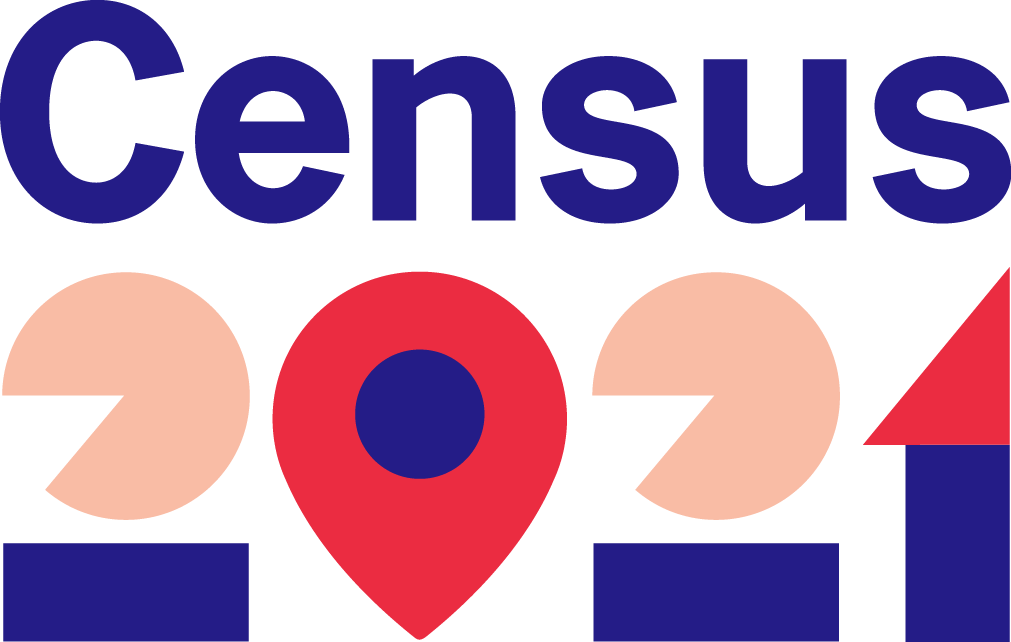19 February 2021
Surveying of the nationality is a permanent part of population and housing censuses. The composition of nationalities in the population plays a part in social policy making and it is a prerequisite for actual recognition of national minorities in the Czech Republic (CR) and of their rights.
The population and housing census form (questionnaire) contains two optional questions. The first one is about belief and religion and the second one is about nationality. Although filling in one's nationality is optional, as a result, it plays an important role in the life of national minorities. The more people claim a certain nationality, the higher the influence of this national minority on the functioning of municipalities, Regions, and the country will be. Thus, for example, it can exercise its right to be taught in its language or to get access to benefit programmes designed for development of minorities.
Filling in the nationality is optional today, whereas during the first Czechoslovak census a hundred years ago it was necessary and crucial. “Nationality of the population was considered to be the most important piece of data during the 1921 Population Census. At that time, it was to confirm that foundation of an independent Czechoslovakia was justified. Today, the concept of nationality is individual, purely subjective, and therefore it is not obligatory,” Marek Rojíček, President of the Czech Statistical Office, explains.
The same as during the last census 10 years ago, people will have a possibility to choose whether they will fill in their nationality or not or whether they will fill in even two nationalities. In the last census, besides Czech nationality people claimed Moravian nationality most of all. The nationality structure of the population in the Czech Republic is also influenced by foreigners who are included in the total population if they live in the CR for a long period of time. Therefore, besides Slovak nationality, also Ukrainian, Polish, Vietnamese, and also German and Russian occurred often in the census forms (questionnaires).
For example, representatives of organisations of the Ukrainian minority in the Czech Republic have already published their own video, in which they inform their compatriots living in Czechia about the upcoming Population Census. Natália Sizoněnko, deputy headmistress of a Ukrainian Saturday school, says in the video, for example, the following: “Children from Saturday school devote their time to learning of subjects in Ukrainian. They try hard not to forget their mother tongue. It is our goal to keep education of Ukrainian children abroad on a good level. It will be also supported by our claiming of Ukrainian nationality in the Census.”
Data about the composition of nationalities and other ethno-cultural characteristics of the population are of great importance in the context of migration, integration, and national minority policy. “To claim Roma nationality is important because integration of the Roma minority is still very problematic here. Draft strategies are elaborated according to estimates of the number of Roma people living in the territory of the Czech Republic. Therefore, it is not possible to determine how many Roma people live here and finances allocated for their integration do not go precisely where they should go,” Štefan Oláh, a member of the Government Council for Roma Minority Affairs, points out. Many organisations thus try to encourage the Roma people to claim their Roma nationality in this year's Census.
“We process all provided data only for the purposes determined by law. Personal data are completely anonymised, erased, and destroyed. Only summary statistical results will be published and it will be done in such way that it will not be possible to deduce from them any relation to concrete persons,” Marek Rojíček assures.
The Population Census will start on 27 March and it is being prepared primarily as an online census. More detailed information is available on the website scitani.gov.cz also in Romany, Vietnamese, Ukrainian, Polish, Russian, German, and English. Online census forms (questionnaires) are also prepared in those seven languages. Printed census forms will be in Czech; however, on the website and at selected post offices or branch offices of the Czech Statistical Office their written translations will be available. The 2021 Census information campaign also takes into account diverse language alternatives, for example, contributions on social networks. The Czech Statistical Office closely co-operates with the secretariat of the Government Council for Roma Minority Affairs at the Office of the Government of the Czech Republic as for informing of representatives of national minorities. “People claiming their nationality is an important signal for the whole society, which can thus obtain real information about composition of nationalities in the population of our country and about their needs. Keep that in mind when filling in the census form,” Klára Jůnová, female secretary of the Council for Roma Minority Affairs, explains.
The Population and Housing Census is carried out once in ten years. It is aimed at acquiring precise and current data that serve to make planning of many aspects of the public life including education, health and social care, or the integrated rescue system more effective. The 2021 Census is being prepared primarily as an online Census – for the first time in our history. People can thus fulfil their legal obligation easily from their homes over the internet without a need to be in contact with a census enumerator (census officer) or to visit a contact point of the Census.
Contact:
Jolana Voldánová
2021 Census spokeswoman
Mobile phone number: +420 704 659 357
e-mail: jolana.voldanova@scitani.cz
